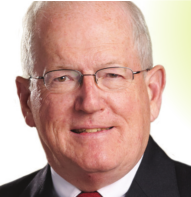Addressing the access-to-justice issue
One of the sad realities in the legal system is that it is expensive. Attorneys cost money, court procedures have become increasingly complex and confusing to the average person, and in many cases, it is those least able to afford it who become involved in legal proceedings.
Most of the action involving ordinary, and often poor, people is in the District Court Division of the Circuit Courts. Landlord and tenant actions, small claims actions and minor criminal cases are heard in front of judges, usually without juries.
In a majority of these cases, one party usually does not have an attorney and appears “pro se.” While this situation would seem to favor those with attorneys, often businesses, landlords and other creditors, in fact, nonrepresentation makes the process more frustrating for everyone, when one party is not educated on the rules of the game.
New Hampshire has a number of programs and nonprofits that attempt to provide legal assistance to poor people, including NH Legal Assistance, 603 Legal Aid, the lawyer referral system that refers cases to attorneys willing to provide representation pro bono (free) or at reduced cost. Notwithstanding these efforts, many still represent themselves.
It is reported that 90% of tenants facing evictions in New Hampshire do not have representation in eviction cases. In family law cases involving divorce, abuse, custody and other difficult personal circumstances, most cases involve two parties, neither of whom has a lawyer. This is especially difficult for all but can be very dangerous for those who have survived domestic violence.
In landlord–tenant cases, unrepresented people often cannot adequately explain the conditions in which they live with rat infestation, broken pipes and appliances, and other conditions.
To attempt to partially remedy the situation, New Hampshire adopted a program some years ago to allow nonlawyer paralegals, paraprofessionals who must have a bachelor’s degree in any area or study, or an associate degree in a law-related field, and two years of work experience in a law-related field to represent clients in family law and landlord–tenant matters in the courts of Berlin, Manchester and Concord.
The paralegals have to act under the supervision of an active member of the New Hampshire Bar.
In the 2024 session of the Legislature, a bill to expand the pilot program was introduced by Sens. Sharon Carson, R-Londonderry, and Becky Whitley, D-Contoocok, and House cosponsors including Rep. Marjorie Smith, D-Durham, and Rep. Robert Lynn of Windham, the Republican former chief justice of New Hampshire. Senate Bill 361, as amended and passed by both houses, does the following: The bill expands the pilot program to all court; extends the program that was scheduled to end in 2025, to 2030; and requires an interim report by the Supreme Court to the Legislature on the efficacy of the program in 2025, and a final report no later than Jan. 1, 2030. Gov. Chris Sununu was expected to sign the legislation shortly after this column was written.
The program is limited to assist those with income levels up to three times the federal poverty level (e.g., $40,770 for a one-person household, $54,930 for a two-person household). Obviously, the alternative for such people not having legal representation is to dive into the deep end of the legal pool without knowing how to swim in those waters. Paralegals, although not always as broadly trained in the law, often are more knowledgeable about specific subjects and processes than attorneys and very able to assist. Giving them the added range of courts and additional time to demonstrate the effectiveness of this program will be a great help.
The pilot project does not come with funding for hiring paralegals to do this important work, unfortunately. The New Hampshire Campaign for Legal Services has set a truly ambitious and unprecedented goal to raise $600,000 this year to support NH Legal Assistance and 603 Legal Aid, which, as noted above, are the programs dedicated to fulfill the American ideal of “equal justice for all.” There are less than one legal aid attorney for every 10,000 New Hampshire citizens who need one. The paralegal program will help.
Anyone reading this column who believes that all citizens, regardless of wealth, deserve competent representation, should consider supporting this effort. It is not only the right thing to do, it is a practical help for those involved in legal processes who come up against unrepresented people and all the complications that involves.
Those so inclined should consider becoming a member of the Leadership Circle of the NH Campaign for Legal Services by visiting nh-cls.org/LeadershipCircle.
I did — and it feels good.
Brad Cook is a Manchester attorney. The views expressed in this column are his own. He can be reached at bradfordcook01@gmail.com.